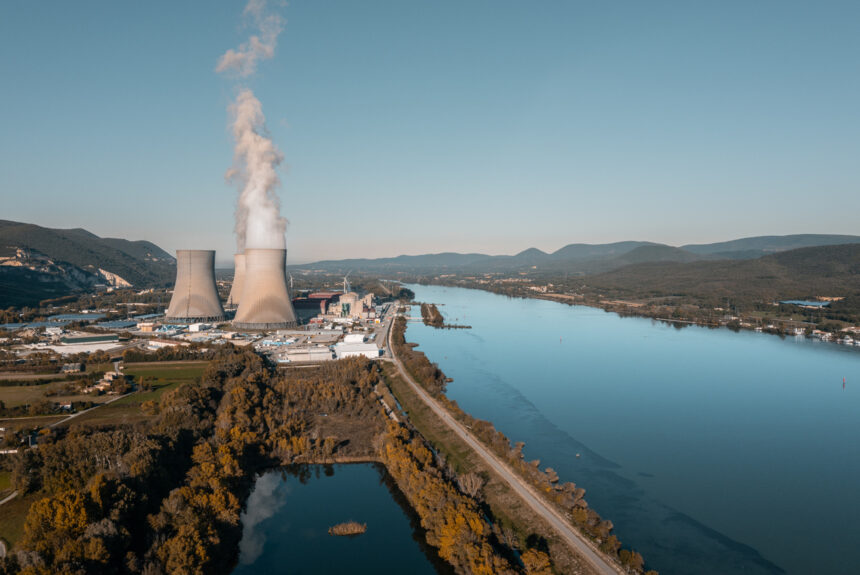International climate talks at COP28 can feel a little like Albert Einstein’s definition of insanity. Countries come to the table each year with similar requests and demands. Pledges are made to cut emissions, transition away from fossil fuels, and transfer money from developed countries to developing ones. Turning words into action can prove difficult, especially if it comes at high costs to consumers and taxpayers.
>>>READ: Breathe Easy: Economic Freedom Freedom Provides a Breath of Fresh Air to the World
One of the more encouraging shifts at COP talks is the role of technology, innovation, and the private sector in addressing climate change. In a world where food security, clean water access, and energy affordability are pressing concerns, free markets can provide a suite of solutions that improve peoples’ lives while reducing global emissions.
How Does Economic Freedom Impact the Climate?
When considering the effect of free economies on greenhouse gas emissions and climate resiliency, several factors come into play. The effectiveness of economic freedom on climate mitigation and adaptation will depend on which policy lever that increases or decreases economic freedom lawmakers use. More efficient tax policy or improving permitting processes could increase economic freedom, which could improve technological innovation and therefore increase economic and environmental efficiencies. That would result in fewer emissions per dollar of GDP. On the other hand, imposing stringent regulations on power plants may reduce CO2 emissions but decrease economic freedom and could come at steep costs to ratepayers.
Like other byproducts of industrial activity, it stands to reason that if higher levels of economic freedom result in higher levels of economic growth, it will also lead to higher levels of greenhouse gas emissions. Several studies have examined the causal effects of economic freedom on CO2 emissions and environmental degradation using CO2 as a proxy, and the results have been mixed. For instance, one analysis published in Environmental Science and Pollution Research in 2022 looked at the environmental outcomes of G-20 economies from 2000–2016. The authors found that the higher levels of investment and economic opportunity resulting from economic freedom put greater strains on countries’ ecosystems. A 2014 study from the Canadian-based Fraser Institute found no statistical significance between increases in economic freedom and CO2 emissions reductions.
Free market policies could result in CO2 emissions following the Environmental Kuznets Curve, where more economic activity increases both wealth and emissions but over time, more resources and technological progress helps bend the emissions curve backwards. A 2020 Research of Industrial Economies paper found encouraging results. The paper combines emissions growth, GDP per capita and rankings on the Fraser Institute’s Economic Freedom of the World Index to find that “available data from 155 countries observed in five-year periods between 1975 and 2015 indicate that economic freedom not only reduces overall CO2 emissions but also shifts the top point of the EKC to the left. As such, the evidence suggests that the transition to lower emissions technology appears at an earlier stage in economically free societies.”
If cleaner technologies, processes, and products are more cost-effective, developing countries will have the incentive to pursue those technologies as opposed to their higher-emitting counterparts. To the extent mature, clean energy sources are unsubsidized, they will likely have a greater chance of long-term economic success because there will be more transparency regarding the price at which these technologies are competitive in the market. Research has shown economic freedom’s positive impact on clean energy generation. A July 2023 study in Environmental Science and Pollution Research looked at the relationship between economic freedom and CO2 emissions in 138 countries from 1995–2018 and found “economic freedom has a direct and indirect negative effect on carbon emissions and that renewable energy consumption mediates the effect of economic freedom on carbon emissions.”
Economic Freedom Helps Build Climate Resilience
Another consideration is how economic freedom can help countries better adapt to climate change. Free economies are wealthier, more innovative and have access to advanced technologies that enable people to better adapt to climate change. Having the economic means to construct stronger levees, sea walls, and more resilient infrastructure has helped save lives and protect communities.
>>>READ: A Clean Economy is a Free Economy
Advanced technologies such as early detection systems, visualization tools, up-to-date flood maps, computer modeling, satellite, and radar are several tools that scientists employ to track weather and storms. Affordable, reliable heat in the winter and air conditioning in the summer offers protection against extreme weather. Researchers are developing crops that better withstand heatwaves and droughts. These investments are not costless but can be a cost-effective solution to reduce the risks and costs of extreme weather. Given the connection between economic freedom and wealth, there is also a strong, positive correlation between those countries that are most economically free and those countries that are the most resilient.
Turning Words into Action
Much of the immediate focus after COP28 is an assessment of the language of the communique. But truly turning words into action will require policymakers around the world to liberate their economies. Policies that encourage people to innovate, build efficiently, and invest and trade freely will elevate levels of human prosperity and drive technological advancements to solve our greatest environmental challenges.
The views and opinions expressed are those of the author’s and do not necessarily reflect the official policy or position of C3.
